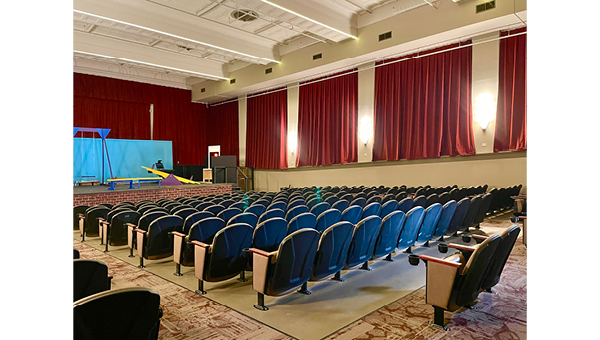That Burns My Biscuits!
Published 8:29 am Tuesday, August 6, 2019
E.J. Smith
Thank you to the reader who gave this week’s subject: Does anyone proofread their writing any more? Not only on Facebook, but in everyday life. We all see glaring mistakes all the time of people (even someone whom you think would know better), mutilating English and misspelling words. No one expects us to speak or write perfectly. However, when you misuse or misspell certain words, your family and friends may let it pass, but what about a potential employer or customer? One example is using “there,” pertaining to a place where people or things are, when they mean “their,” pertaining to people or ownership. “It is there dog,” is confusing. “It is their dog” is correct. When words such as these are swapped about in writing, it makes what you are trying to say confusing. I don’t know about anyone else, but sometimes I have a hard time reading stuff on Facebook, the spelling and English is so terrible. Throws me for a loop, you know?
Newspapers, magazines and other media have employees who read every word before it goes to press.
We too, can take an extra minute to make sure what we write is readable and understandable. This is the reason we also must proofread everything we write. We want everyone who reads our work to understand what we are attempting to say. Right? The following are definitions and examples to show how we can misuse words so frequently. It is the English we learned in high school, but do we remember it all? Not likely, but we do need to pay attention now to be effective in writing.
Homophones: words that sound alike, but are spelled differently and have different meanings: Ate, eight. Blue, blew. See, sea. Ad, add. “I want a blew dress.” Since “blew” sounds just like “blue,” it will not be corrected.
Homonyms: words that are spelled the same, pronounced the same, but have a drastically different meaning. Band: a music group, a ring. “He put the wedding band on her finger.” “‘The Band’” is playing tonight.” Bark: a dog’s voice, a tree covering. “A dog’s bark is worse than its bite.” “The tree bark is rough.” You can see by these words that spellcheck will not help in either situation as it doesn’t in many others. We must proofread all of our writing so that those reading will not be confused and lose their train of thought trying to figure out what we mean.
Trust me, bad things can happen when you do mess up symbols as well. Here is a quite humorous situation in which someone got a.m. and p.m. mixed up. Several years ago I visited a big box store in a town somewhere in East Tennessee. The sign on the huge overhead marquee outside said, “Open at 8:00a.m. Close at 12:00p.m.” Well, 12 pm is the middle of the day! That is according to the National Physical Laboratory UK, Look it up… Due to my unwavering griping about written language being abused and to remind people of what they learned in high school, I went in. (Who did I think I was, The Symbol Police?) I got a blank look when I asked a young lady at the customer service center why they closed at noon. (Was that mean? Truly sorry). She did not know what I was talking about of course, putting it the way I did. So I told her about the sign being incorrect and she and I had a good laugh and she reported it to her manager. You think he proofread all future signs before displaying them to the public? Probably. This document was proofread 20 times.
Don’t stop the feedback! burnsmybiscuit@gmail.com.
You are in my prayers,
E.J.





